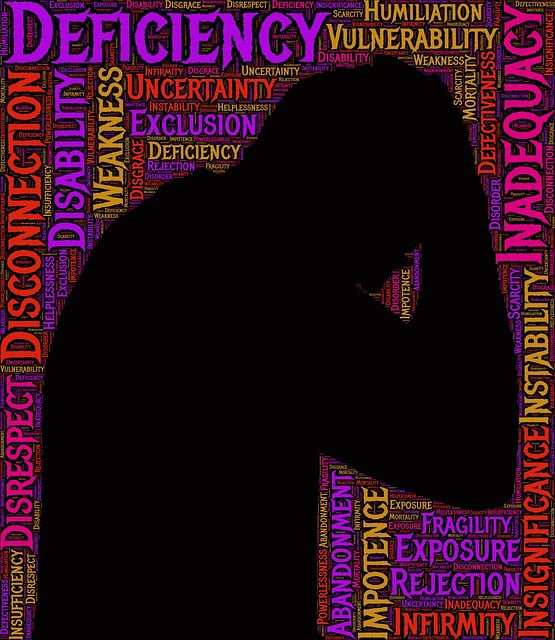Longmont Blended Families Therapy employs comprehensive risk assessment as a foundational strategy to protect and empower families within complex structures. By identifying potential hazards, therapists prioritize emotional well-being and guide families towards building resilience. This holistic approach integrates harm minimization planning, mental wellness resources, and community outreach, enabling clients to navigate challenges effectively while fostering long-term emotional regulation skills. Through skilled therapist interventions, open communication, and access to local support networks, Longmont Blended Families Therapy creates a safe environment, ensuring both immediate and future well-being for blended family members.
In the complex landscape of modern family structures, especially within Longmont blended families, understanding risk assessment and implementing harm minimization strategies is paramount. This article serves as a guide for navigating the challenges these unique familial dynamics present. From recognizing potential harms to empowering professional therapists, we explore a comprehensive approach. Learn how to develop robust strategies, ensure continuous evaluation, and provide effective support for all involved, fostering a safer and more harmonious environment.
- Understanding Risk Assessment: A Cornerstone of Safe Planning
- Identifying Potential Harms in Blended Family Dynamics
- The Role of Professional Therapists in Risk Minimization
- Developing a Comprehensive Harm Minimization Strategy
- Implementation and Continuous Evaluation for Effective Support
Understanding Risk Assessment: A Cornerstone of Safe Planning

Understanding Risk assessment is paramount when crafting any plan for a safer future. For Longmont Blended Families Therapy, this involves meticulously evaluating potential hazards and their likelihood of occurrence, along with the severity of consequences. It’s not about eliminating every possible risk but rather prioritizing and mitigating those that pose the greatest threat to individuals within the family unit. This strategic approach allows therapists to guide families towards building resilience and fostering a supportive environment.
This process is intricately linked to harm minimization planning, where strategies are developed to reduce the impact of risks should they materialize. By integrating insights from the Mental Wellness Podcast Series Production, focusing on themes like Self-Esteem Improvement and Emotional Regulation, therapists can empower families with tools to navigate challenges effectively. This holistic approach ensures that Longmont Blended Families Therapy not only tackles immediate concerns but also equips individuals with lifelong skills for emotional well-being.
Identifying Potential Harms in Blended Family Dynamics

In blended family dynamics, identifying potential harms requires a nuanced understanding of the unique challenges these families face. Longmont Blended Families Therapy recognizes that these households often involve step-parents, biological parents, and children from different relationships, leading to complex emotional landscapes. Issues such as stepped-parenting conflicts, sibling rivalry, and adjusting to shared custody can significantly impact an individual’s emotional well-being and mental health. Effective risk management planning for mental health professionals involves recognizing these dynamics and tailoring support strategies accordingly.
Professionals in Longmont Blended Families Therapy can aid families in navigating these complexities through comprehensive risk assessment tools that consider each member’s individual needs, including self-esteem improvement techniques. By fostering open communication, promoting understanding, and implementing effective Emotional Well-being Promotion Techniques, therapists can mitigate potential harms and create healthier family environments. This proactive approach not only supports the immediate family but also empowers mental health professionals to contribute meaningfully to the long-term resilience of blended families.
The Role of Professional Therapists in Risk Minimization

Professional therapists play a pivotal role in risk minimization planning for complex families, such as those involved in Longmont Blended Families Therapy. Their expertise is invaluable when it comes to identifying potential hazards and developing strategies to mitigate them. Therapists are trained to assess individual and family dynamics, recognizing vulnerabilities and triggers that could escalate into harmful situations. Through tailored interventions, they foster resilience building, equipping families with the tools to navigate challenges effectively.
These professionals also facilitate open communication, encouraging all members to express their concerns and needs. By implementing community outreach program initiatives, therapists can connect families with valuable resources and support networks. This holistic approach ensures that mental wellness becomes a priority, addressing not just immediate risks but also long-term well-being.
Developing a Comprehensive Harm Minimization Strategy

Developing a comprehensive harm minimization strategy is an integral part of responsible practice, especially for services like Longmont Blended Families Therapy. This approach ensures that potential risks are identified and managed proactively, fostering a safe environment for all involved. By integrating emotional intelligence and empathy-building strategies, therapists can anticipate and address client needs effectively.
A well-rounded harm minimization plan involves the community outreach program implementation, where local resources and support systems are engaged. This collaborative effort not only broadens the support network available to clients but also empowers them with skills to navigate challenges independently. Through such initiatives, Longmont Blended Families Therapy aims to minimize potential harms while promoting positive outcomes for individuals and families seeking support.
Implementation and Continuous Evaluation for Effective Support

Implementing effective risk assessment and harm minimization strategies requires a dynamic approach, especially within the context of Longmont Blended Families Therapy. It involves ongoing evaluation and adaptation to changing circumstances. By establishing clear protocols for identifying and managing risks, therapists can ensure they provide the best possible support to their clients. This process includes regularly reviewing case notes, conducting client assessments, and gathering feedback from both individuals and families.
A crucial aspect of this strategy is the Community Outreach Program Implementation, which allows professionals to stay informed about local resources and emerging trends in mental health care. Moreover, Public Awareness Campaigns Development can play a significant role in educating the community, fostering an environment that promotes early intervention and proactive risk management. Regularly updating Risk Management Planning for Mental Health Professionals ensures that practices remain compliant, effective, and aligned with evidence-based methods, ultimately enhancing the overall well-being of those seeking therapy.
Risk assessment and harm minimization planning are vital components of creating a safe and supportive environment for Longmont blended families. By understanding potential risks, identifying specific harms within family dynamics, and leveraging professional therapist support, families can develop comprehensive strategies to mitigate these issues. Continuous evaluation and implementation ensure that these plans remain effective and adaptable to changing circumstances. This structured approach allows blended families to thrive, fostering healthy relationships and well-being for all involved.












